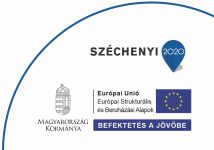Zámbóné Kocic Larisa: Epic conventions : from Gondibert to Paradise lost. (2018) [Online oktatási csomag (e-learning lecke/téma)]
Előnézet |
Szöveg
EFOP343_AP6BTK2_R18CEL_02_ZamboneKocicLarisa_2018aug30.pdf Letöltés (560kB) | Előnézet |
Angol cím
Epic conventions : from Gondibert to Paradise lost
Absztrakt, leírás
This lesson will introduce the main features of the mid-seventeenth century English literary criticism (Restoration), and the emergence of neo-classical tradition relying on Aristotle, Horace, Cicero and Quintilian (and their appropriation by continental critics). It will focus on the function of the critic as that of deducing (and improving) “rules” of composition from the works of distinguished ancients to be followed by contemporary writers and used as grounds of judgement for discernible readers/critics. As these rules were prescribing the appropriate conventions of literary (mostly poetic) genres, the lessons will focus on these genres, the present one elaborating the epic. Topics will include: • the rise of classicism; the methods of Restoration critics: analytical (Aristotelian) and rhetorical (Horace); the application of the antique oratorical aspects of creation to composition of poetry; admiration of simplicity and propriety (decorum); • the main genres deduced from the classics and their hierarchical structuring; • the centrality of the epic in contemporary literary debates on heroic poem (Davenant, Hobbes, Cowley); the quarrel of the Ancients and Moderns • epic conventions • John Milton (1608-1674) and the emerging idea of Paradise Lost (1667).
Angol nyelvű abstract, leírás
This lesson will introduce the main features of the mid-seventeenth century English literary criticism (Restoration), and the emergence of neo-classical tradition relying on Aristotle, Horace, Cicero and Quintilian (and their appropriation by continental critics). It will focus on the function of the critic as that of deducing (and improving) “rules” of composition from the works of distinguished ancients to be followed by contemporary writers and used as grounds of judgement for discernible readers/critics. As these rules were prescribing the appropriate conventions of literary (mostly poetic) genres, the lessons will focus on these genres, the present one elaborating the epic. Topics will include: • the rise of classicism; the methods of Restoration critics: analytical (Aristotelian) and rhetorical (Horace); the application of the antique oratorical aspects of creation to composition of poetry; admiration of simplicity and propriety (decorum); • the main genres deduced from the classics and their hierarchical structuring; • the centrality of the epic in contemporary literary debates on heroic poem (Davenant, Hobbes, Cowley); the quarrel of the Ancients and Moderns • epic conventions • John Milton (1608-1674) and the emerging idea of Paradise Lost (1667).
| Oktatási anyag típusa: | Online oktatási csomag (e-learning lecke/téma) |
|---|---|
| Angol cím: | Epic conventions : from Gondibert to Paradise lost |
| Dátum: | 2018 |
| Nyelv: | angol |
| Tananyag típusa: | gyakorlófeladat, jegyzet, tankönyv, képi tartalom |
| Tananyag szervezettségi szintje: | önálló téma, tanóra |
| Tipikus tanulási idő: | 1 hét |
| Nehézségi szint: | 3 |
| Célcsoport: | Hallgató típus Szak típus BSc/BA NEM RÉSZLETEZETT |
| Hivatalos webcím (URL): | http://ieas-szeged.hu/sociablespirit/ |
| Kapcsolódó URL-ek: | https://goo.gl/forms/p1ankdGIuvkYhUFw1, https://dtk.tankonyvtar.hu/xmlui/handle/123456789/13486 |
| Projektek: | EFOP-3.4.3-16-2016-00014 |
| Alprojekt: | AP6 |
| Altéma száma: | AP6_BTK_2 |
| Tanszék, intézet: | Angol Tanszék, Angol-Amerikai Intézet |
| Kar: | Bölcsészettudományi Kar |
| Szemeszter: | 2018/19/2 |
| Kurzuskód: | ANGBA3 |
| Megjegyzések: | Bibliogr.: 10. p. ; ill. |
| Kulcsszavak: | angol irodalom története, angol költészet, John Milton, John Dryden, William Davenant, Samuel Butler |
| Angol kulcsszavak: | restoration, literary criticism, epic, John Dryden, John Milton, William Davenant, Samuel Butler, the quarrel of the ancients and moderns |
| Szakterület: | 06. Bölcsészettudományok 06. Bölcsészettudományok > 06.02. Nyelvek és irodalom 06. Bölcsészettudományok > 06.02. Nyelvek és irodalom > 06.02.03. Általános irodalomtudományok 06. Bölcsészettudományok > 06.02. Nyelvek és irodalom > 06.02.03. Általános irodalomtudományok > 06.02.03.01. Irodalomtörténet 06. Bölcsészettudományok > 06.02. Nyelvek és irodalom > 06.02.03. Általános irodalomtudományok > 06.02.03.02. Irodalomelmélet, összehasonlító irodalomtudomány, irodalmi stílusok 06. Bölcsészettudományok > 06.02. Nyelvek és irodalom > 06.02.05. Specifikus irodalom |
| Feltöltés dátuma: | 2018. Nov. 05. 09:16 |
| Utolsó módosítás: | 2022. Már. 09. 15:24 |
| URI: | https://eta.bibl.u-szeged.hu/id/eprint/569 |
 |
Tétel nézet |


